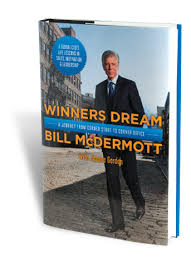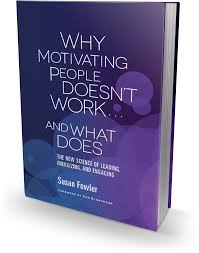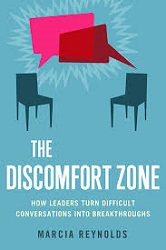ATD Blog
Mustn't Miss: New Executive Book Reviews
Wed Nov 12 2014

The ATD Senior Leaders Community of Practice reviews a few new book titles that learning execs can't afford to miss.
Winners Dream: **A Journey from Corner Store to Corner Office**Bill McDermott

Simon & Schuster
October 2014
336 pages
In Winners Dream: A Journey from Corner Store to Corner Office, Bill McDermott, CEO of the world’s largest business software company, SAP, chronicles how relentless optimism, hard work, and disciplined execution embolden people and equip organizations to achieve audacious goals. McDermott says, “All the winners I ever met, started with a dream. If you will be loyal to a dream...you can be a winner. Five years from now, I would love young people all over the world to look at the Winners Dream as a template for empowering success.” Colorful and fast-paced, Bill’s anecdotes contain effective takeaways: gutsy career moves; empathetic sales strategies; incentives that yield exceptional team performance; and proof of the competitive advantages of optimism and hard work.
**_

Uncontainable
_**Kip Tindell with Paul Keegan and Casey Shilling
Grand Central Publishing
October 2014
272 pages
In 1978, Kip Tindell, Chairman and CEO of The Container Store, and his partners had the vision that people were eager to find solutions to save both space and time, and a new category of the retailing industry was born: storage and organization. Over the years, The Container Store has been lauded for its commitment to its employees and on its original concept and inventory mix as the formula for its success. For Tindell, the goal is to adhere to the company's values-based business philosophies, which center on an employee-first culture, superior customer service, and strict merchandising. In Uncontainable, Tindell reveals his approach for building a business where everyone associated with it thrives through embodying the tenets of Conscious Capitalism. Tindell is that rare CEO who fully embraces the "Golden Rule" of business: where all stakeholders, employees, customers, vendors, shareholders, and the community are successful through a balance of win-wins.
**_

Why Motivating People Doesn’t Work
_**Susan Fowler
Berrett-Koehler Publishers
September 2014
216 pages
Based on the latest research and extensive work with hundreds of companies, trainer and coach Susan Fowler has a shocking message to leaders about motivating their people: STOP! In this book, Fowler shows leaders how they can get out of the way and encourage their people to learn the skills of self-motivation. Applying recent psychological discoveries she lays out a tested model and a course of action that will help leaders guide their people towards the kinds of motivation that not only increases productivity and engagement, but gives them a profound sense of purpose and fulfillment. Fowler argues that leaders still depend on traditional carrot and stick techniques, because they haven’t understood their alternatives. She shows leaders how to move people away from dependence on external rewards and help them discover how their jobs can meet their deeper psychological needs—for autonomy, relatedness, and competence—that science tells us result in meaningful and sustainable motivation.
**_

The Discomfort Zone
_**Marcia Reynolds
Berrett-Koehler Publishers
October 2014
176 pages
Leaders, managers, and coaches are charged with getting people to stretch their limits, but are often unsuccessful. Leadership coach Marcia Reynolds says the problem is incorrectly handled as difficult conversations create more resistance than growth. Reynolds offers a model and methods for discovering what to say so people change their own minds. As a result, leaders equip people to find their own solutions, see situations more strategically, and grow beyond their limitations. Reynolds explains how to pick the right time and place to enter the discomfort zone and how to create a “safety bubble” so that people will trust your intentions. Drawing on recent discoveries in the neuroscience of learning, she helps leaders ask the kinds of questions that short-circuit the brain’s defense mechanisms and habitual thought patterns. Instead of being told, people see for themselves where they’re falling short and how they can do better, resulting in lasting changes.
You've Reached ATD Member-only Content
Become an ATD member to continue
Already a member?Sign In
